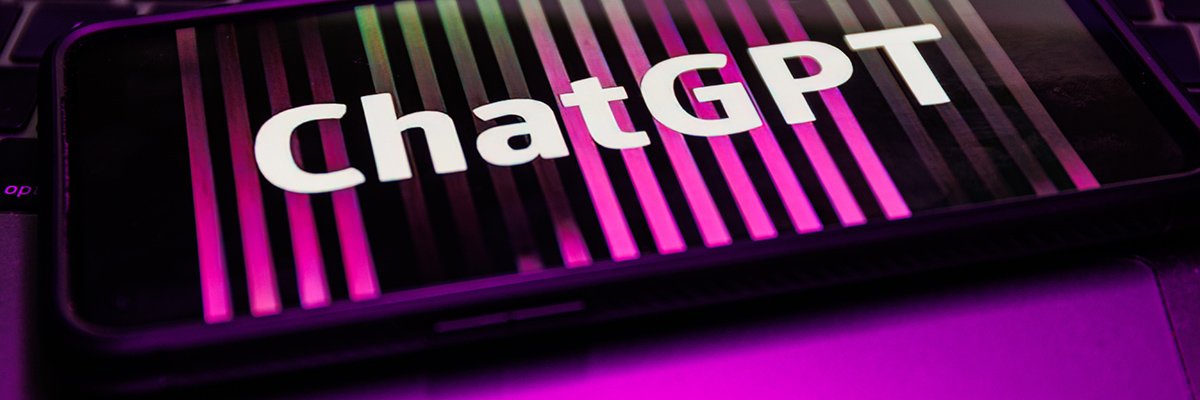OpenAI’s mission statement is focused on building artificial general intelligence (AGI) to benefit everyone. It has now signed a strategic partnership with the UK government, looking at how to deploy artificial intelligence (AI) in areas such as justice, education, and defence and security.
The Memorandum of Understanding (MoU) between the Department for Science, Innovation and Technology (DSIT) and OpenAI will see collaboration between the government and the maker of ChatGPT to identify opportunities for how advanced AI models can be deployed throughout government and the private sector, and inform government policy to support AI infrastructure.
The UK is following the US’s lead in AI after the White House unveiled the Stargate Project, which will see investment of $500bn over the next four years to build a new US-based AI infrastructure for OpenAI.
While the public large language model (LLM) can be accessed by anyone and is trained on publicly accessible data, OpenAI is building out an enterprise AI business. This aims to serve the needs of technology and business leaders, who have specific requirements for authorising access to internal data and need reassurances that their organisation’s data will not be used to train a public LLM. This is a significant factor in adhering to enterprise cyber security policies and meeting the public and private sector UK General Data Protection Regulation (GDPR) and Data Protection Act (DPA) requirements that ensure citizen data is not shared.
AI adoption is rocketing
Matt Weaver, who leads the solutions engineering team for Europe at OpenAI, says ChatGPT is used by over 600 million people every week around the world. “We’re getting around a billion messages a day to the platform. It’s amazing adoption and usage,” he says.
Further illustrating the rate of business adoption and use of AI technology, he says there are around two million paying business users on the ChatGPT platform, which has grown by 50% in a single quarter.
Weaver’s team comprises technical people who directly interact with customers to help them figure out how to apply the AI company’s technology. He says its remit ranges from large enterprises, such as banks and insurance companies, to startups and digital-native businesses.
OpenAI’s deal with Microsoft
Microsoft is a major partner and investor in OpenAI. In fact, along with being a major investor in the AI firm, Microsoft recently expanded the partnership, which makes the OpenAI application programming interface (API) exclusively available on its Azure public cloud platform. It is also available through the Azure OpenAI Service. The agreement means customers of Microsoft Azure benefit from having access to OpenAI models on Microsoft platforms and directly from OpenAI.

“When ChatGPT Enterprise Workspace is adopted by an enterprise, we don’t train on their data for anything. It’s fully encrypted. It’s entirely private to the organisation”
Matt Weaver, OpenAI
Microsoft and OpenAI have revenue-sharing agreements that flow both ways, which means both companies benefit from increased use of new and existing models.
While Microsoft’s inclusion of OpenAI software in the Microsoft 365 Copilot suite has increased adoption of the technology among its customers, Weaver says enterprises are “shifting and pivoting their strategy to ChatGPT Enterprise”.
ChatGPT in the enterprise
Morgan Stanley Wealth Management is one of OpenAI’s reference customers. It is using ChatGPT 4.0 to enhance how financial advisors access the firm’s knowledge base and respond to client needs.
Weaver believes enterprises are moving to ChatGPT Enterprise because, unlike Microsoft’s Copilot AI, it is not limited to one tech provider’s ecosystem. By default, OpenAI says it does not use business data from ChatGPT Enterprise, ChatGPT Edu, ChatGPT Team, or its API platform.
Virgin Atlantic recently unveiled Virgin Atlantic Concierge, in collaboration with OpenAI and Tomoro.ai, to deliver personalised support for travellers. Weaver says it is the first European airline to integrate an advanced voice interface through a real-time API.
Accessible through the Virgin Atlantic app, the concierge provides personalised, hands-free assistance when needed, anytime, anywhere and in any language. Due to become available later this year, Weaver says the digital concierge is activated via a button on a user’s mobile phone and allows them to converse with it using natural language.
Securing ChatGPT
ChatGPT Enterprise Workspace offers connectors into enterprise systems, which Weaver says enables data to be pulled in automatically and searched across SharePoint or Google Drive. “All of that data is entirely private and protected within a ChatGPT Enterprise account,” he says.
“When ChatGPT Enterprise Workspace is adopted by an enterprise, we don’t train on their data for anything. It’s fully encrypted. It’s entirely private to the organisation,” he says.
Weaver describes the approach OpenAI has taken with IT security as analogous to the authentication used to grant access to other enterprise IT systems. Consider the example of using ChatGPT to access Microsoft SharePoint or Google Drive data. “It’s really important that when I’m inside of ChatGPT and run a search, it only retrieves the data that I would be able to see if I logged into SharePoint myself to find the files. If I’m not allowed to see a file in SharePoint, then it shouldn’t show up in my ChatGPT results.”
Using “non-trivial engineering”, Weaver says the data is effectively locked in a filing cabinet, which cannot be opened unless the user has the right key. So if a user asks ChatGPT a question, the data held in the locked filing cabinet is unavailable to answer that question.
“My key won’t open it, and I won’t see the answer,” he says. “This means security teams, executives and business leaders can be super confident that they’re really just giving employees much easier access to the stuff they already have access to.”
Enterprise AI moves from pilot to production
From the conversation with Weaver, it would seem OpenAI is seeing enterprise AI move from pilot to production.
“Last year, everyone was experimenting, running different pilots and proof of concepts about how AI might be used,” he says. “This year, we’re seeing customers go to production. They’re taking these sophisticated AI systems and transforming them as critical business processes, both internally and for their customers.”
